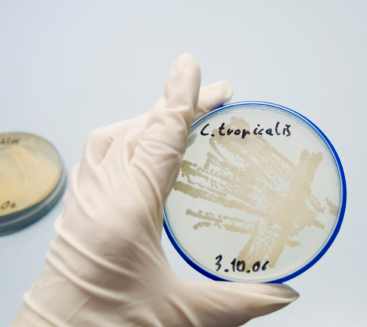Recurrent Thrush

One common example of this situation is an allergic reaction in the vaginal area. Occasionally, women may be allergic to seminal plasma and, as a result, may experience attacks after sexual intercourse. This has little or nothing to do with repeat infection from their partners.
Thrush is very common and, fortunately, it is highly sensitive to over the counter antifungal agents.
However, some species of thrush, on the other hand, are commonly resistant to the usual medications. Infections with these other types of recurrent thrush are more likely to be recurrent because of treatment failure. Conditions that affect the woman’s immune system, such as pregnancy and antibiotic use are associated with recurrent thrush, whilst diseases such as diabetes, cancers and HIV, or drugs such as steroids, immunosuppressants, and the combined pill may also affect immune function leading to recurrent thrush.
Since Thrush thrives in warm, moist, and airless parts of the body, women who wear tight fitting nylon, Lycra and other non cotton fabric underwear or swimsuits for long periods of time, may be promoting the favorable conditions for the growth.
How do I manage recurrent thrush?
The doctor will obtain a comprehensive and detailed history of the patient’s lifestyle, her hygienic practices, dietary habits, medications, allergies, and sexual practices to try and characterize the precipitating factors.

- Initiate suppressive therapy for the acute attack and introduce maintenance therapy for 3 – 6 months. This is usually sufficient for 60 – 70% of sufferers, but the remaining 30 – 40% may relapse within 6 months of discontinuing therapy and this can be repeated.
- The specie of Candida and the sensitivity profile should be reviewed if breakthrough attacks occur during maintenance therapy. These attacks may be managed as acute attacks whilst maintenance therapy is continued
- Avoid or discontinue douching, bubble baths, bath salts and oils, perfumed and scented soaps, and similar feminine products as the patient may be allergic to these. Other common household items handled by the patient should be scrutinized.
- Preference should be given to loose fitting, exclusively cotton based, underclothing. Thongs, tights (stockings are preferable) and tight fitting jeans/trousers should be avoided or worn only occasionally.
- Exclude or control underlying diabetes, and review any relevant contributory drugs such as long term steroids or the combined pill.
- Exclude other causes of the symptoms including vulval dermatoses – lichen sclerosus, lichen planus, contact dermatitis, and vulval intraepithelial neoplasia.
Austin Ugwumadu has a special interest in this area. You can ask your doctor for a referral to his clinic at St Georges Hospital in Tooting, London or you can see him privately at Parkside Hospital beside Wimbledon Common, London or Newlife clinic in Epsom, Surrey.
